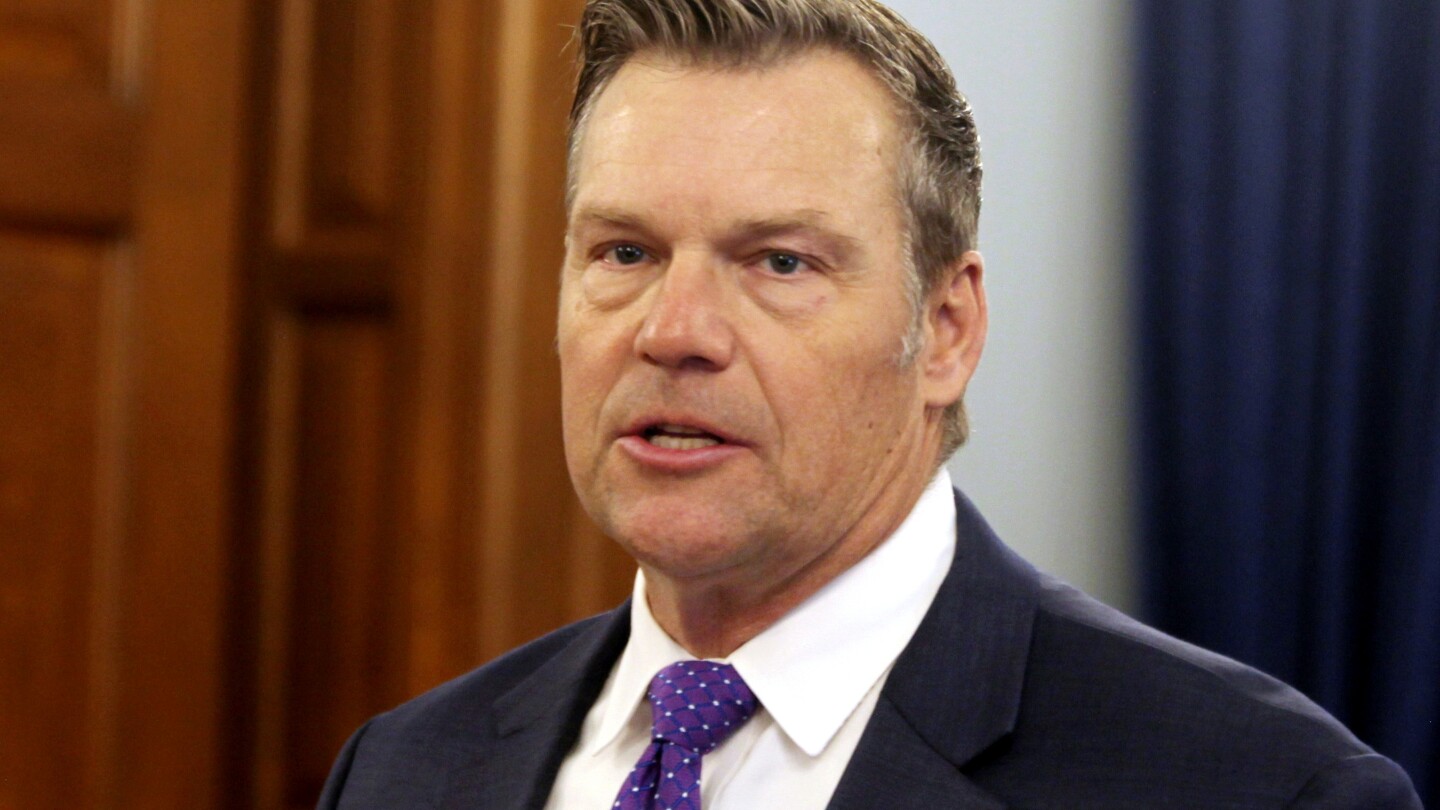If their constitution is anything like the United States Constitution and government, then one of the fundamental principals is that not every right is specifically enumerated in the law, meaning just because a thing isn’t specifically listed as being a right doesn’t mean it’s necessarily not a right. Voting is obviously one of those things.
And, correct me if I’m wrong, but don’t some of those unenumerated rights include those granted by the federal government— such as the right to vote?
I guess you don’t have to pay taxes in Kansas.
No taxation without representation and all.
Originalists my white hairy ass.
They decided the constitution does not include a right to vote with a vote?
Kansas has decided that it is a sovereign citizen
Well, the flag in the room had gold fringe, which, according to Maritime Law, suspends the constitution.
^^^if ^^^you ^^^believe ^^^this ^^^you ^^^are ^^^blindingly ^^^stupid.
That only applies in the legal fiction of KANSAS, not in the actual state of Kansas.
LOL, ISWYDT! 🤣
Next thing you know, Kansas is sending all-caps letters Remittance and Demand to the NHTSA demanding their share of the Interstate Highway System, as it was allocated to their secret treasury account under the Uniform Commercial Code as enacted by the Continental Congress in 1779.
(I really need to stop reading that stuff)
Not many people know this, but Kansas is actually oriented at 45 degree angle to the rest of the United States.
And it’s very, very red.
And vibrantly rainbow colored in various areas.
You forgot the “WITHOUT PREJUDICE” they add to everything.
Which is kinda ironic since they tend to be far right bigots and thus positively BRIMMING with the other kind of prejudice 😁
I mean, the constitution specifically outlines who is disqualified from voting, so the inherent assumption would be, if you aren’t disqualified, then you have the right to vote:
https://law.justia.com/constitution/kansas/art5.html
Article 5:
Justia US Law Kansas Law Kansas Constitution Article 5: Suffrage
Article 5: Suffrage
§ 1: Qualifications of electors. Every citizen of the United States who has attained the age of eighteen years and who resides in the voting area in which he or she seeks to vote shall be deemed a qualified elector. Laws of this state relating to voting for presidential electors and candidates for the office of president and vice-president of the United States shall comply with the laws of the United States relating thereto. A citizen of the United States, who is otherwise quali fied to vote in Kansas for presidential electors and candidates for the offices of president and vice-president of the United States may vote for such officers either in person or by absentee ballot notwithstanding the fact that such person may have becom e a nonresident of this state if his or her removal from this state occurs during a period in accordance with federal law next preceding such election. A person who is otherwise a qualified elector may vote in the voting area of his or her former residenc e either in person or by absentee ballot notwithstanding the fact that such person may have become a nonresident of such voting area during a period prescribed by law next preceding the election at which he or she seeks to vote, if his new residence is in another voting area in the state of Kansas.
§ 2: Disqualification to vote. The legislature may, by law, exclude persons from voting because of mental illness or commitment to a jail or penal institution. No person convicted of a felony under the laws of any state or of the United States, unless pardoned or restored to his civil rights, shall be qualified to vote.
§ 4: Proof of right to vote. . The legislature shall provide by law for proper proofs of the right of suffrage.
This is the best summary I could come up with:
Justice Eric Rosen, one of the three who dissented, shot back: “It staggers my imagination to conclude Kansas citizens have no fundamental right to vote under their state constitution.”
A Shawnee County District Court judge had earlier rejected the groups’ request for an emergency injunction, saying that impersonation of a public official is not protected speech.
But the high court faulted the new law, noting that it doesn’t include any requirement that prosecutors show intent by a voter registration volunteer to misrepresent or deceive people into believing they’re an election official, and it thus “criminalizes honest speech” where “occasional misunderstandings” are bound to occur, Stegall wrote in the majority opinion.
Loud Light executive director Davis Hammet said he hopes the lower court “will stop the irreparable harm caused daily by the law and allow us to resume voter registration before the general election.”
Instead, in a joint statement, Schwab and Kobach focus on the high court’s language bolstering the signature verification law and its upholding of a provision that says individuals may collect no more than 10 advance ballots to submit to election officials.
Last year, the Kansas Court of Appeals reinstated a lawsuit challenging the ballot collection limitation and the signature verification, saying both impair the right to vote.
The original article contains 755 words, the summary contains 210 words. Saved 72%. I’m a bot and I’m open source!
Apportionment really should be a based on the census and some weighting derived from the number of voters.
Coming soon to a state beginning with the letter ‘K’, direct laws disenfranchising large swaths of the population.
deleted by creator







